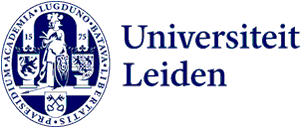
A quick call about Ukraine: 'Putin wants to be taken seriously'
Suddenly there they were, the Russian soldiers near the border of Ukraine. Since then, reports of tensions between Russia on the one hand and the United States and Europe on the other have dominated the news. What is going on? An interview with Russia expert André Gerrits.
To all appearances, the tense situation on the Russian-Ukrainian border is the next step in the conflict between the two countries, which has been going on for at least eight years. After conquering the Crimean peninsula and bringing two areas of eastern Ukraine under Russian influence, Russian President Vladimir Putin is now demanding that Ukraine never join NATO. According to Gerrits, we should look at the current situation in a geopolitical framework. ‘Actually, the question ought to be: are the current problems really the result of the situation in Ukraine or is it Russia who is becoming impatient in its relations with Europe and the United States? NATO must not expand further eastwards. Putin has said as much, in more or less vehement terms, but the West has shown virtually no interest. Putin now uses the difficult relationship with Ukraine to reinforce this demand, but now with something that resembles the threat of military action in Ukraine. Evidently, diplomatic means were not working.’
Escalation? Seems unlikely
Still, Gerrits does not anticipate that a large-scale war between Russia and its opponents will break out. ‘About 100,000 men are standing on the border at this moment. That is far too few for an invasion and occupation of Ukraine. Perhaps Putin wants to send troops to the two areas in the east to emphasise that they are under Russian control, but I expect it is mainly intended as military support for what are in fact political demands.' According to Gerrits, we should not be afraid that they will turn off the gas either: Russia will not be inclined to cut off the gas supply for political reasons. They are just as dependent on our money as we are on their gas.
Demanding respect
The likelihood of an invasion clearly seems pretty small, as does the possibility that the European Union and the United States will meet Putin's demands and permanently exclude Ukraine from NATO membership. Nevertheless, according to Gerrits, the Russian president benefits from the military pressure. ‘When I say: “Putin wants to be taken seriously,” it may sound futile to Western ears, but until not so long ago, Russia was considered a global power and was respected by the United States. Not much of that respect is left.’ China has now taken Russia’s place as a global power and America’s opponent, while Russia carries little economic weight. ‘Putin understands how Russia has stumbled after the Cold War and how NATO has expanded, and he refuses to accept that any longer. And now he is prepared to use sabre-rattling to put pressure.'
With effect: 'The current US President Biden has already consulted Putin more in one year than his predecessors did in their whole runs. Macron visited Putin, everyone talks about Russia, everyone talks about Russia's demands. Although those demands are not being met, Putin has managed to be taken seriously in the halls of international diplomacy and most of all by the United States.'
